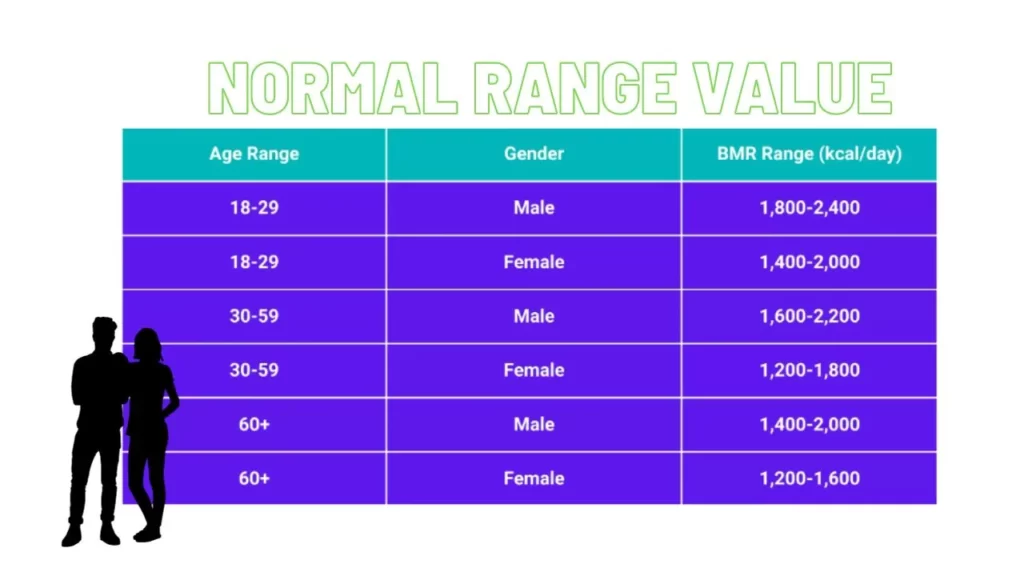BMR Calculator
Related : BMI Calculator
Decoding BMR (Basal Metabolic Rate) and Its Impact on Weight Management
BMR represents the energy required by the body at rest, akin to the fuel consumption of an idle car. In this comprehensive exploration, we’ll uncover the intricacies of BMR, its calculation methods, and the multitude of factors that influence it.
The BMR Calculation through the BMR Calculator

Several factors influence an individual’s BMR, including age, gender, weight, height, and body composition. The Harris-Benedict equation and the Mifflin-St Jeor equation are commonly used formulas to calculate BMR. The equations take into account different variables and provide a baseline estimate of the calories your body needs at rest.
BMR and Weight Management
Understanding your BMR is crucial for effective weight management. Once you know your BMR, you can tailor your calorie intake to either lose, maintain, or gain weight. If you consume fewer calories than your BMR, you are likely to lose weight, while exceeding your BMR will lead to weight gain. Combining BMR with the assessment of your daily activity level through the Total Daily Energy Expenditure (TDEE) allows for a more accurate estimation of your calorie needs.
Practical Application
To calculate your BMR, you can use an online BMR calculator (that is given above) that takes into account factors such as age, gender, weight, height, and activity level. Once armed with your BMR, you can set realistic and personalized nutrition goals. For weight loss, creating a calorie deficit by consuming fewer calories than your BMR is crucial, whereas weight gain requires a surplus.
It’s important to note that while BMR is a valuable tool, individual variations exist. Factors like muscle mass, genetics, and health conditions can influence the accuracy of BMR estimates. Therefore, it is advisable to use BMR as a starting point and make adjustments based on your body’s response.
The Basics of BMR Calculation (BMR Calculator)
At its core, BMR is the energy needed for vital organ function when the body is at rest, with the digestive system inactive. Approximately 70% of daily energy expenditure is attributed to basal metabolism, while physical activity and the thermogenic effect of food make up the remaining 30%. The BMR is determined by various factors, including age, gender, weight, height, and body composition.
Equations for BMR Calculation
Several equations have been developed to estimate BMR, with the Mifflin-St Jeor, Revised Harris-Benedict, and Katch-McArdle formulas being prominent. The Mifflin-St Jeor Equation, considered the most accurate, incorporates factors like age, weight, height, and gender. The Katch-McArdle Formula adds body fat percentage to the mix, making it particularly suitable for individuals with knowledge of their body composition.
BMR Variables: Understanding Influences on Basal Metabolism
- Muscle Mass: Anaerobic exercises, such as weight-lifting, contribute to higher BMR by increasing muscle mass.
- Age: BMR tends to decrease with age, reflecting the lower caloric intake required for organ maintenance in older individuals.
- Genetics: Hereditary traits inherited from ancestors play a role in determining BMR.
- Weather: Both cold and excessively hot environments can elevate BMR, as the body expends energy to maintain a stable internal temperature.
- Diet: Regular, balanced meals elevate BMR, while starvation can reduce it by up to 30%.
- Pregnancy: Supporting a developing fetus increases BMR in pregnant women.
- Supplements: Certain supplements, like caffeine, can temporarily raise BMR, often for the purpose of weight loss.
BMR Tests and Resting Metabolic Rate (RMR)
While online BMR calculators provide estimations, certified specialists or calorimetry devices are more accurate methods for measurement. Resting Metabolic Rate (RMR) is often used interchangeably with BMR but differs in that it accounts for energy expenditure in a relaxed but not fully inactive state.
Modern Wisdom and Practical Applications
Despite precise measurement methods, there remains a 26% unknown variance in BMR between individuals, according to a 2005 meta-analysis study. Therefore, BMR calculations, even when performed by specialists, offer estimates rather than exact values. To navigate health and fitness goals effectively, maintaining a detailed journal of exercise, food consumption, and other relevant factors can provide valuable insights and guide adjustments over time.
Conclusion
Understanding BMR is a fundamental step in crafting personalized and effective weight management strategies. While BMR serves as a foundational element, it is essential to recognize its limitations and leverage additional tools and insights to tailor fitness plans to individual needs. By combining knowledge of BMR with a holistic approach to health, individuals can embark on a journey toward sustainable well-being and fitness.

